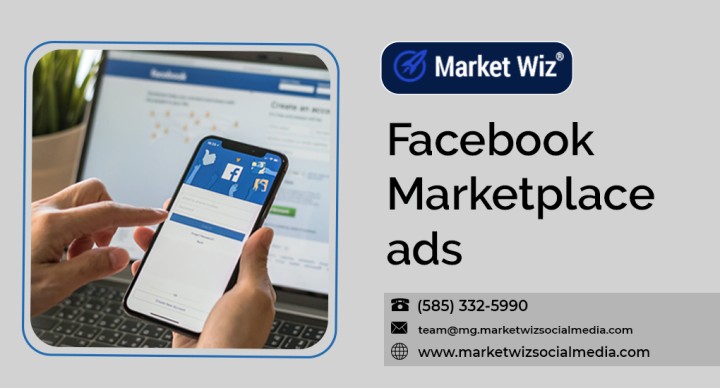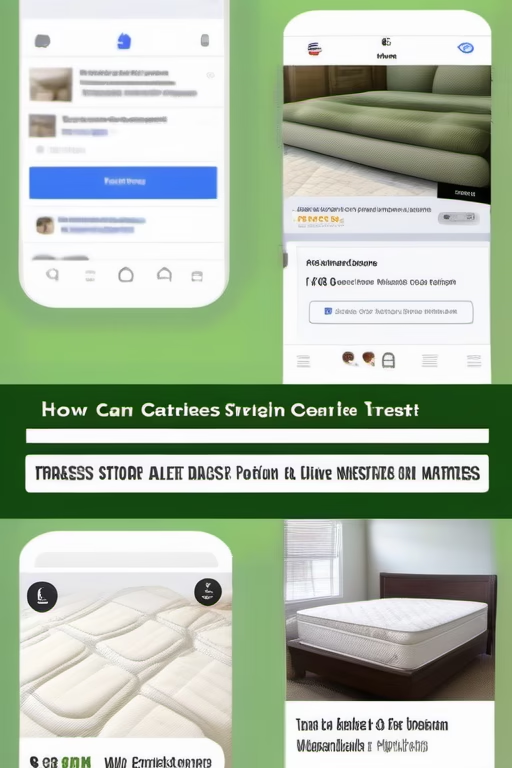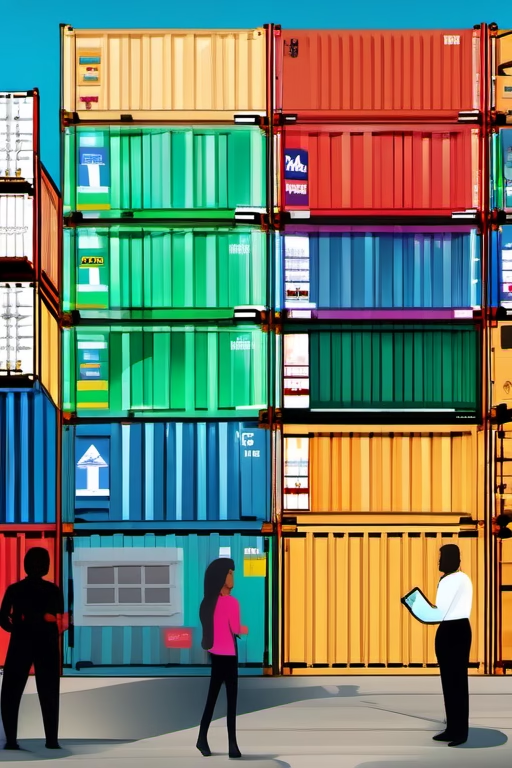Using SEO to Market Your Trailer Business Locally
Boost your local presence and sales with effective SEO strategies tailored for trailer businesses.
In today’s digital landscape, leveraging Search Engine Optimization (SEO) is essential for any trailer business looking to thrive locally. By optimizing your online presence, you can attract more customers, increase visibility, and drive sales. This comprehensive guide explores effective SEO strategies to market your trailer business locally, ensuring you stand out in a competitive market.
1. What is Local SEO?
Local SEO is the process of optimizing your online presence to attract more business from relevant local searches. It involves various strategies aimed at improving your visibility in local search results, ensuring that your trailer business appears prominently when potential customers in your area search for trailer-related services or products.
Understanding Local SEO
Local SEO focuses on optimizing your website and online profiles to rank higher in search results for location-specific queries. This includes optimizing for keywords that include your city or region, ensuring your business information is consistent across all platforms, and actively managing your online reputation through reviews and local citations.
Benefits of Local SEO
Implementing local SEO strategies can lead to increased visibility, more website traffic, higher conversion rates, and ultimately, greater sales. It helps you connect with customers who are actively searching for trailer businesses in your vicinity, making it easier to attract and retain local clientele.
2. Optimizing Google My Business
Google My Business (GMB) is a powerful tool for local SEO, allowing you to manage how your trailer business appears in Google Search and Maps. Proper optimization of your GMB listing can significantly enhance your local visibility and attract more customers.
Claim and Verify Your Listing
Start by claiming your GMB listing and completing the verification process. This step is crucial to ensure that you have control over the information displayed about your trailer business.
Complete Your Profile
Fill out all the relevant information in your GMB profile, including your business name, address, phone number, website, hours of operation, and categories. Accurate and comprehensive information helps potential customers find and contact you easily.
Add High-Quality Photos
Upload high-quality images of your trailer business, including your products, storefront, and team. Visual content can attract more interest and provide a better understanding of your offerings.
Encourage and Respond to Reviews
Positive reviews on your GMB listing can boost your local SEO rankings and build trust with potential customers. Encourage satisfied customers to leave reviews and respond to them promptly, addressing any concerns or feedback.
Utilize GMB Posts
Regularly use GMB posts to share updates, promotions, events, and news about your trailer business. These posts keep your listing fresh and engaging, attracting more attention from local searchers.
3. Finding and Using Local Keywords
Local keywords are search terms that include location-specific words, helping your trailer business appear in local search results. Identifying and effectively using these keywords is essential for optimizing your content and improving your local SEO.
Conducting Local Keyword Research
Use tools like Google Keyword Planner, SEMrush, or Ahrefs to identify relevant local keywords. Focus on phrases that potential customers are likely to use when searching for trailer businesses in your area, such as "utility trailers in [Your City]" or "best trailer dealers near me."
Incorporating Keywords into Your Content
Integrate local keywords naturally into your website’s content, including titles, headings, meta descriptions, and body text. Avoid keyword stuffing, as it can negatively impact readability and SEO performance.
Creating Location-Specific Pages
If your trailer business serves multiple locations, consider creating dedicated pages for each area. Each page should focus on localized keywords and provide information relevant to that specific region, enhancing your overall local SEO strategy.
Using Long-Tail Local Keywords
Long-tail keywords are more specific phrases that target niche segments of your local market. Examples include "heavy-duty utility trailers for sale in [Your City]" or "affordable trailer rentals near [Your Location]." These keywords can attract highly targeted traffic and improve conversion rates.
4. Building Local Citations
Local citations are online mentions of your trailer business’s name, address, and phone number (NAP) on other websites. Building consistent local citations is vital for improving your local SEO rankings and establishing your business’s credibility.
Listing in Local Directories
Ensure your trailer business is listed in reputable local directories such as Yelp, Yellow Pages, and local Chamber of Commerce websites. Consistent NAP information across these platforms boosts your local SEO.
Utilizing Industry-Specific Directories
In addition to general directories, list your trailer business on industry-specific platforms like TrailerTrader.com or TractorHouse.com. These specialized directories attract a targeted audience interested in trailers, enhancing your chances of finding qualified leads.
Maintaining NAP Consistency
Ensure that your business name, address, and phone number are consistent across all citations. Inconsistent information can confuse search engines and negatively impact your local SEO rankings.
Monitoring and Updating Citations
Regularly monitor your citations to ensure accuracy and update them as needed. Keeping your information current is essential for maintaining trust and improving your search engine rankings.
5. Local Content Marketing
Creating localized content is a powerful way to engage with your local audience, improve your SEO rankings, and establish your trailer business as an authority in the community.
Writing Localized Blog Posts
Develop blog content that addresses local events, news, or trends related to the trailer industry. Topics could include "Top 5 Trailer-Friendly Routes in [Your City]" or "How Local Regulations Affect Trailer Sales in [Your Region]."
Creating Engaging Videos
Produce videos that showcase your trailers, provide maintenance tips, or feature customer testimonials. Localized video content can increase engagement and be shared across social media platforms to reach a wider audience.
Developing Infographics
Design infographics that highlight key information about trailers, such as "Benefits of Owning a Utility Trailer in [Your City]" or "Trailer Maintenance Checklist for Local Trailers." Infographics are easily shareable and can enhance your content marketing efforts.
Hosting Local Webinars or Workshops
Offer webinars or in-person workshops on topics like trailer maintenance, safety tips, or selecting the right trailer for your needs. These events position your business as an expert and attract local customers interested in learning more.
6. Gaining and Managing Reviews
Online reviews are a critical component of local SEO and can significantly influence potential customers’ decisions. Actively managing and encouraging reviews can enhance your trailer business’s reputation and improve search rankings.
Encouraging Satisfied Customers to Leave Reviews
After completing a sale or service, ask satisfied customers to leave a review on your Google My Business listing or other review platforms. Providing a direct link to your review page can make the process easier for them.
Responding to Reviews Promptly
Respond to all reviews, both positive and negative, in a timely and professional manner. Thank customers for their feedback, address any concerns raised in negative reviews, and demonstrate your commitment to customer satisfaction.
Showcasing Positive Reviews
Feature positive reviews on your website and social media profiles to build trust and credibility. Highlighting testimonials from happy customers can attract new clients and reinforce your business’s reputation.
Handling Negative Reviews Constructively
Address negative reviews by acknowledging the issue, apologizing if necessary, and offering solutions. Handling criticism gracefully shows potential customers that you value feedback and are dedicated to improving your services.
7. Mobile Optimization
With the majority of local searches being conducted on mobile devices, ensuring your trailer business’s website is mobile-friendly is essential for effective local SEO.
Responsive Website Design
Implement a responsive design that automatically adjusts to different screen sizes and orientations. A responsive website provides a seamless user experience, keeping visitors engaged and reducing bounce rates.
Fast Load Times
Optimize your website’s performance to ensure fast load times on mobile devices. Compress images, leverage browser caching, and minimize the use of heavy scripts to enhance speed and user experience.
Easy Navigation
Design intuitive navigation menus and buttons that are easy to use on smaller screens. Ensure that important information, such as contact details and product listings, is easily accessible to mobile users.
Mobile-Specific Features
Incorporate mobile-specific features such as click-to-call buttons, location-based services, and mobile-friendly forms. These features enhance the functionality and convenience of your website for mobile users, encouraging engagement and conversions.
8. Social Media Integration
Integrating social media into your local SEO strategy can amplify your online presence, engage with your community, and drive more traffic to your trailer business’s website.
Sharing Local Content
Promote your localized blog posts, videos, and infographics on social media platforms. Sharing content that resonates with your local audience can increase engagement and attract more followers interested in your trailer business.
Engaging with Local Communities
Participate in local groups and forums on platforms like Facebook and LinkedIn. Engaging with these communities allows you to connect with potential customers, answer their questions, and establish your trailer business as a trusted local authority.
Running Social Media Ads
Use targeted social media advertising to reach potential customers in your area. Platforms like Facebook and Instagram offer advanced targeting options based on location, interests, and behaviors, ensuring your ads reach the right audience.
Encouraging User-Generated Content
Encourage customers to share their experiences with your trailers on social media. User-generated content, such as photos and testimonials, can enhance your online reputation and provide authentic endorsements for your trailer business.
9. Local Backlink Building
Building backlinks from reputable local websites can significantly boost your local SEO by increasing your website’s authority and improving your search engine rankings.
Partnering with Local Businesses
Collaborate with other local businesses to exchange backlinks. For example, if you partner with a local repair shop, you can feature each other on your websites, providing mutual backlinks that enhance SEO.
Contributing to Local Blogs and Publications
Write guest posts or contribute articles to local blogs, newspapers, and online magazines. These contributions can include backlinks to your website, improving your site’s authority and visibility in local search results.
Sponsoring Local Events and Organizations
Sponsoring local events, sports teams, or community organizations can earn you backlinks from their websites. These links not only boost your SEO but also enhance your brand’s presence in the community.
Listing in Local Business Directories
Ensure your trailer business is listed in local business directories such as Yelp, Yellow Pages, and your local Chamber of Commerce website. These listings provide valuable backlinks that improve your local SEO rankings.
10. Monitoring and Analyzing SEO
Regularly monitoring and analyzing your SEO efforts is crucial to understanding what works, identifying areas for improvement, and adjusting your strategies to achieve better results.
Using SEO Tools
Leverage SEO tools like Google Analytics, Google Search Console, SEMrush, or Ahrefs to track your website’s performance. These tools provide insights into traffic sources, keyword rankings, user behavior, and more.
Tracking Key Metrics
Monitor important SEO metrics such as organic search traffic, bounce rate, conversion rate, keyword rankings, and the number of backlinks. Tracking these metrics helps you assess the effectiveness of your SEO strategies.
Conducting Regular Audits
Perform regular SEO audits to identify technical issues, content gaps, and opportunities for optimization. Audits ensure that your website remains optimized and continues to perform well in local search results.
Adjusting Strategies Based on Data
Use the data collected from your SEO tools to make informed decisions. Adjust your keyword strategy, update your content, and refine your backlink-building efforts based on the insights gained from your analysis.
Setting and Reviewing Goals
Define clear SEO goals, such as increasing local traffic, improving keyword rankings, or boosting sales. Regularly review your progress towards these goals and adjust your strategies as needed to stay on track.
Conclusion
Utilizing SEO to market your trailer business locally is a strategic approach that can significantly enhance your online visibility, attract more customers, and drive sales. By implementing the strategies outlined in this guide—optimizing your Google My Business listing, using local keywords, building local citations, creating localized content, managing reviews, optimizing for mobile, integrating social media, building local backlinks, and continuously monitoring your SEO efforts—you can establish a strong local presence and stay ahead of the competition.
Remember, SEO is an ongoing process that requires consistent effort and adaptation to changing trends. Stay informed about the latest SEO best practices, engage with your local community, and continuously refine your strategies to achieve long-term success.
At Market Wiz, we specialize in helping businesses like yours harness the power of SEO to achieve their marketing goals. Whether you need assistance with local SEO, content creation, or comprehensive digital marketing strategies, our team of experts is here to support you every step of the way. Elevate your trailer business’s online presence and drive growth with Market Wiz.
Frequently Asked Questions (Q&A)
1. What is local SEO and why is it important for my trailer business?
Answer: Local SEO focuses on optimizing your online presence to attract more business from relevant local searches. It helps your trailer business appear prominently in search results when potential customers in your area look for trailer-related services or products, increasing visibility and sales.
2. How do I optimize my Google My Business listing for my trailer business?
Answer: Ensure your Google My Business listing is complete with accurate information, high-quality images, business hours, and contact details. Encourage satisfied customers to leave positive reviews and regularly update your listing with new photos and posts to engage with potential buyers.
3. What are local keywords and how do I find them for my trailer business?
Answer: Local keywords are search terms that include location-specific words, such as "utility trailers in [Your City]". Use tools like Google Keyword Planner, SEMrush, or Ahrefs to identify relevant local keywords that potential customers are using to find trailer businesses in your area.
4. How can I use online reviews to enhance my local SEO?
Answer: Encourage customers to leave reviews on your Google My Business listing and other review platforms. Respond to reviews promptly and professionally, addressing any concerns raised in negative reviews, and showcasing positive testimonials to build trust and improve your search rankings.
5. What role does mobile optimization play in local SEO for my trailer business?
Answer: Many local searches are conducted on mobile devices. Ensuring your website is mobile-friendly improves user experience, keeps visitors engaged, and is favored by search engines, which can enhance your local SEO rankings.
6. How do I create localized content for my trailer business website?
Answer: Develop content that addresses local events, news, or customer stories related to your trailer business. Write blog posts about local road trips, feature local customers, and provide information that is specifically relevant to your geographic area to attract local traffic.
7. Can social media impact my local SEO?
Answer: Yes, active social media profiles can enhance your local SEO by increasing your online presence and engagement. Sharing localized content, interacting with local followers, and promoting your Google My Business listing through social media can positively impact your SEO efforts.
8. How important are local backlinks for my trailer business SEO?
Answer: Local backlinks from reputable local businesses, organizations, and directories can significantly boost your local SEO by signaling to search engines that your trailer business is an integral part of the local community.
9. What are some effective strategies for gaining local backlinks?
Answer: Partner with local businesses for mutual promotions, sponsor local events, contribute guest posts to local blogs or newspapers, and get listed in local business directories. Building relationships within your community can lead to valuable local backlinks.
10. How does website speed affect my local SEO?
Answer: Website speed is a crucial factor in user experience and SEO. A faster website ensures that visitors stay longer and engage more, which can improve your search rankings. Optimize your website’s load times by compressing images, leveraging browser caching, and minimizing code.
11. Should I use schema markup for my trailer business website?
Answer: Yes, using schema markup can help search engines better understand your website’s content and improve the way your listings appear in search results. Implementing local business schema can enhance your local SEO by providing detailed information about your trailer business.
12. How can I track the effectiveness of my local SEO efforts?
Answer: Use tools like Google Analytics and Google Search Console to monitor website traffic, user behavior, and search performance. Track metrics such as organic search traffic, keyword rankings, conversion rates, and the number of reviews to assess the impact of your SEO strategies.
13. What are some common local SEO mistakes to avoid?
Answer: Common mistakes include inconsistent NAP (Name, Address, Phone Number) information, neglecting mobile optimization, ignoring online reviews, not using local keywords, and failing to update your Google My Business listing regularly. Avoiding these errors can enhance your local SEO performance.
14. How often should I update my Google My Business listing?
Answer: Regularly update your Google My Business listing with new photos, posts, offers, and accurate information. Keeping your listing current ensures that potential customers have the latest details about your trailer business and can engage with your content effectively.
15. Can I use paid SEO services to improve my local trailer business?
Answer: Yes, investing in paid SEO services can help you implement advanced strategies, gain expert insights, and achieve better results faster. Paid services can include local SEO audits, keyword research, content creation, and link-building campaigns tailored to your trailer business.
16. What is the role of content marketing in local SEO for my trailer business?
Answer: Content marketing plays a significant role in local SEO by providing valuable and relevant information to your local audience. Creating localized content, such as blog posts, videos, and infographics, can attract and engage potential customers, improving your search rankings and driving traffic to your website.
17. How can I use customer testimonials to enhance my local SEO?
Answer: Featuring customer testimonials on your website and Google My Business listing can build trust and credibility. Positive testimonials can improve your online reputation, encourage more reviews, and enhance your local SEO by providing fresh, relevant content.
18. What is the importance of having a blog for my trailer business’s local SEO?
Answer: Having a blog allows you to regularly publish fresh, relevant content that can target local keywords and address the interests of your community. A blog can improve your website’s SEO, attract more local traffic, and establish your trailer business as an authority in the industry.
19. How do I choose the right local keywords for my trailer business?
Answer: Choose local keywords that reflect the search terms your potential customers use, including your city or region. Use keyword research tools to identify high-volume, low-competition keywords and incorporate them naturally into your website’s content, meta tags, and descriptions.
20. Can video content improve my local SEO for my trailer business?
Answer: Yes, video content can enhance user engagement, increase time spent on your website, and provide valuable information to potential customers. Optimizing videos with local keywords, descriptive titles, and tags can improve your local SEO and help your trailer business rank higher in search results.
25 Extra Keywords for Your Digital Marketing Agency Website
- Digital marketing strategies
- SEO services
- Social media management
- PPC advertising
- Content creation
- Brand development
- Online marketing solutions
- Email marketing campaigns
- Website design and development
- Conversion rate optimization
- Influencer marketing
- Video marketing services
- Local SEO optimization
- Mobile marketing
- E-commerce marketing
- Analytics and reporting
- Marketing automation
- Reputation management
- Graphic design services
- Digital advertising agency
- Search engine marketing
- Lead generation strategies
- Marketing consultation
- Retargeting campaigns
- Comprehensive marketing plans

















